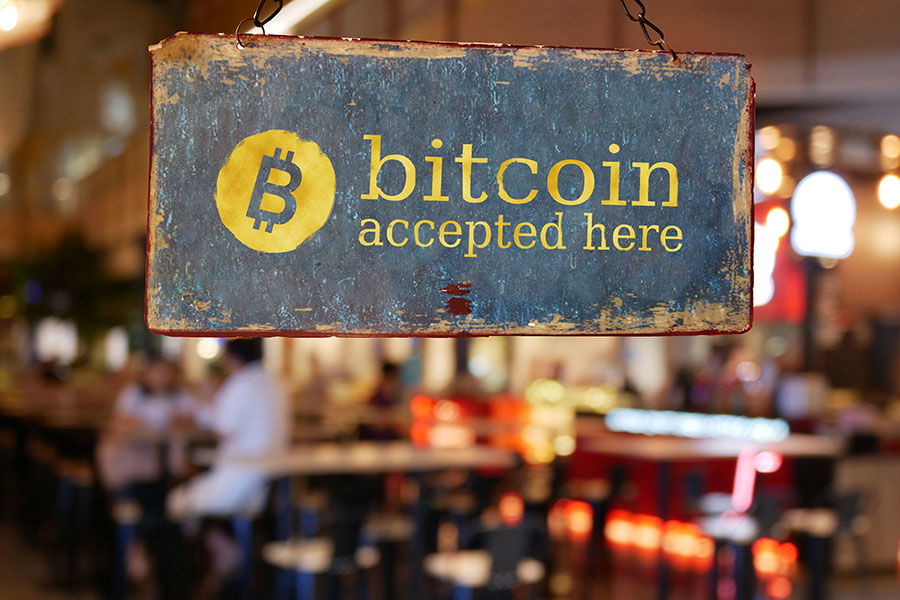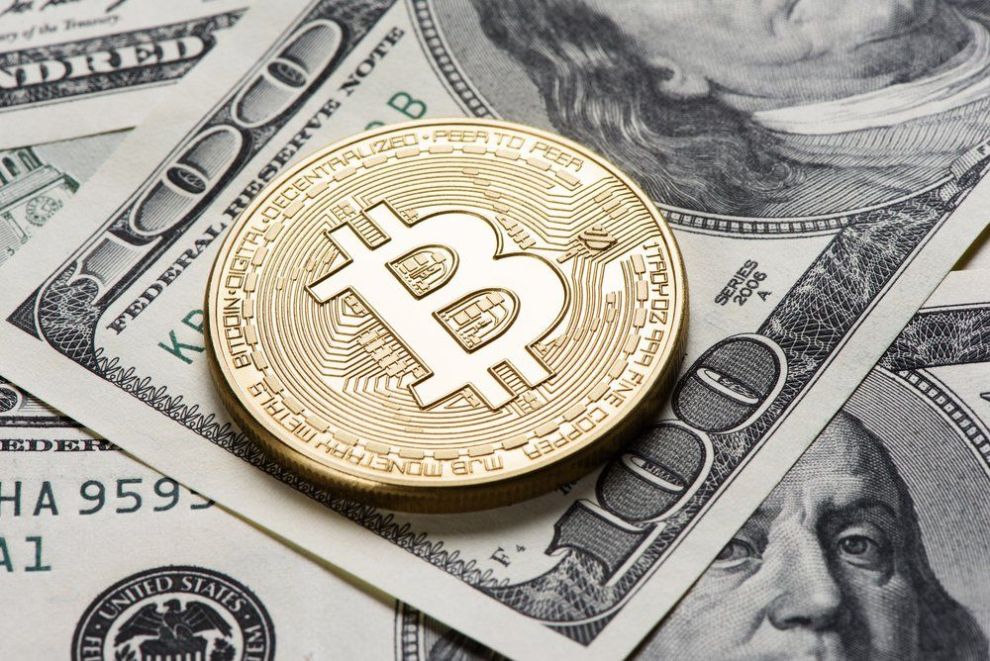Jeff Booth thinks most people are asking the wrong question.
We’ve been raised to believe that inflation is just part of life—prices rise, your money loses value, and the only way to get ahead is to work harder and invest more. But what if that entire framework is upside-down?

In a recent interview, Booth—a tech entrepreneur and author of The Price of Tomorrow—argues that in a truly free market, prices fall. Permanently. Inflation isn’t natural—it’s manufactured. And once you understand that, Bitcoin stops looking like a speculative asset and starts looking like an exit plan.
Let’s break down Booth’s core ideas—and why he believes even a small amount of Bitcoin could one day be enough to retire on.
The System Is Built on Debt—and It’s Already Broken
According to Booth, the financial system isn’t just fragile—it’s fundamentally broken. Today’s $900 trillion in global assets are sitting on top of roughly $600 trillion in debt. And if that debt ever fully unravels, the assets go with it.
That’s why governments won’t allow a true collapse. Instead, they’ll keep printing money, bailing out failures, and stacking more complexity onto a system that can’t survive without constant intervention.
The result? More control, more centralization, and more artificial growth to cover up a giant hole in the foundation.
Bitcoin Isn’t Just Another Asset—It’s a Whole New System
Here’s where Bitcoin comes in.
Booth says people make a huge mistake when they think of Bitcoin as just another investment. It’s not part of the existing system. It’s outside of it—open, decentralized, and secured by energy rather than trust in banks or governments.
If it stays that way, Booth believes Bitcoin will gradually reprice everything. Not because Bitcoin “goes up,” but because the current system goes down. And since Bitcoin isn’t tied to debt, it doesn’t need inflation to function.
That makes it more than a hedge. It makes it a parallel economy—one that gets stronger the more people opt in.
Could Bitcoin really have infinite purchasing power?
Booth isn’t shy about his thesis: Bitcoin, in time, could have infinite purchasing power.
That’s not hyperbole—it’s math. Take the $900 trillion in global asset value and divide it by 21 million (the hard limit on how many Bitcoin will ever exist). Now factor in that a few million of those coins are probably lost forever.
Even if Bitcoin captures just a fraction of global wealth, the purchasing power of each coin becomes massive. And as technology continues to make everything cheaper, your slice of Bitcoin could stretch further and further.
In other words, you might not need a full coin. You might just need time and patience.
Yes, Even Bitcoiners Can Get Trapped by Fiat Thinking
Booth also sounds the alarm on something many Bitcoiners don’t want to admit: the risk of falling back into the very system they’re trying to escape.
Think of ETFs, custodial wallets, or people bragging about gains in fiat terms. When you start measuring Bitcoin in dollars—and chasing price action—you’re playing the old game again. And that game is designed to extract your wealth.
Booth warns that many will be tempted to trade their sovereignty for convenience or short-term profit. But if too many do, the decentralized structure of Bitcoin could be compromised. That’s why self-custody and node-running aren’t just technical choices—they’re acts of resistance.
Inflation Isn’t Natural—Falling Prices Are
If you’ve grown up thinking inflation is just part of how the economy works, Booth wants you to ask one question: why?
In a truly free market, prices should fall over time. That’s what happens with TVs, phones, and other tech. Better products, lower prices. That’s how productivity works.
But our system doesn’t allow that. It relies on inflation to survive, because without it, the debt collapses. So we all pay more each year—not because of supply and demand, but because the system is rigged to make it that way.
Booth believes we’ve accepted this theft for so long, we don’t even see it anymore. But Bitcoin changes that. It flips the equation. And it gives individuals the ability to choose a system where progress benefits everyone—not just the people at the top.
Bitcoin Isn’t Just Money—It’s a Personal Transformation
For Booth, Bitcoin isn’t just about economics. It’s about sovereignty, integrity, and personal responsibility.
Self-custody isn’t just a technical choice—it’s a commitment to opt out of a system that exploits your time and productivity. Running a node isn’t just for developers—it’s about refusing to outsource your judgment. Booth puts it plainly: “Nodes are the gatekeepers of freedom.”
Bitcoin doesn’t just change how you store value. It changes how you see value, time, relationships, and even truth. Once you cross that threshold, it’s hard to go back.
Why the Fiat System Can’t Coexist With Bitcoin
There’s no peaceful merger between fiat money and Bitcoin. Booth is clear on this: the two systems are built on completely different principles—and they’re on a collision course.
Fiat requires manipulation, inflation, and control. It thrives on fear and central planning. Bitcoin is open, peer-to-peer, and driven by voluntary exchange.
Governments, central banks, and media institutions can’t allow a free monetary network to compete with their monopoly on money. And that resistance has already started—regulation, surveillance, and coordinated attacks are only the beginning.
The clash isn’t hypothetical. It’s happening now. The question is how many people will choose freedom before the pressure ramps up.
Think You’re Late to Bitcoin? Think Again.
One of the most common questions Booth hears is: “Did I miss it?”
His answer? Not even close.
Every Bitcoin cycle makes people feel like they’re too late. But the truth is, we’re still early. Governments haven’t even started accumulating in size. Most people still think Bitcoin is either a scam or just another stock.
Booth’s advice: ignore the noise and focus on the fundamentals. Bitcoin adoption is a long game, and the biggest gains—economic and personal—come from opting in early and holding your ground.
“You can still front-run governments,” he says. And for now, you still can.
See also: How to Buy Bitcoin (BTC)
The Bitcoin Network Is Still Just Getting Started
If Bitcoin is like the internet, we’re still in the dial-up days.
Booth compares Bitcoin’s current stage to the early layers of the internet before the World Wide Web existed. What we see today—buying, selling, storing—is just Layer 1.
New layers are being built fast:
- Lightning makes payments instant and cheap.
- Fedimint allows private, community-controlled custody.
- Nostr and Start9 are building tools for uncensorable communication and self-hosted services.
Each one strengthens the network, improves privacy, and keeps the system from being captured. Bitcoin isn’t just scaling in value—it’s scaling in functionality.
Why Jeff Booth Still Believes in Voting
Booth doesn’t think politics will save us. But that doesn’t mean we can ignore it.
He sees sound money as the foundation for everything else. And right now, both political parties—left and right—are locked into the same system of centralized money and growing control.
That’s why Booth still chooses to vote. Not because he believes the system is fixable, but because the right leadership can slow down its collapse. “Money is superordinate to law,” he says. Without fixing money, nothing else matters.
So while Bitcoin might outlive governments, voting for people who support monetary freedom can still buy time—and protect those making the transition.
See also: Mark Moss’s 5-Year Bitcoin Retirement Strategy: How It Works
What a Bitcoin Future Could Actually Look Like
Booth paints a future that’s radically different from the one we’re used to: a world where 8 billion people create value for each other without middlemen, inflation, or coercion.
AI plays a key role—not as a job killer, but as a force multiplier. In a Bitcoin-based economy, AI would drive prices down, freeing up time and improving quality of life. Instead of making the rich richer, that value would be distributed to everyone.
Dictatorships and top-down systems wouldn’t survive in that environment. Why? Because they rely on monetary control to maintain power. In Booth’s vision, Bitcoin makes that impossible. Over time, freedom wins—not because people revolt, but because they choose a better system.
Final Thoughts: Opting Out Is the Only Real Protest
Booth’s message isn’t complicated. You don’t need permission to exit a broken system. You just need to choose differently.
Run a node. Hold your own keys. Spend in Bitcoin. That’s how you shift your time and energy into a system built on truth, not control.
Booth has spent years helping people break free from the illusions of fiat. His legacy isn’t just about money—it’s about reminding people they have a choice.
And the earlier you make it, the more it matters.
Watch the Full Interview and Learn More
Want the full experience? Watch the full video interview here to hear Jeff Booth break it all down in his own words.
To learn more about Jeff’s work, speaking, and writing, visit JeffBooth.ca. You can also follow him on X: @JeffBooth
This conversation was hosted by Simply Bitcoin, a daily show covering Bitcoin news, interviews, and commentary from a signal-over-noise perspective.



